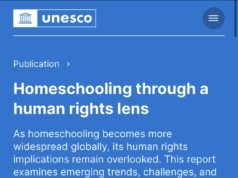
According to a cabinet decision in 2015, draft policies, bills and regulations must include a Socio-Economic Impact Assessment, also referred as a SEIA. The purpose of a SEIA is to understand the full costs of regulation and especially the impact on the economy. This is to avoid a situation where legislators make laws that are unaffordable by the public or the state, and where the benefits do not justify the costs. The SEIA that accompanies a bill must contain all the necessary information to ensure that all intended and unintended consequences of the bill are considered.
When the BELA Bill was published for comment in 2017, the SEIA was not made available to the public. After the Pestalozzi Trust applied pressure, the Department of Basic Education (DBE) provided the SEIA. When the Trust studied this SEIA, it was found that the SEIA did not at all consider the clause on home education (Clause 37).
In order to avoid a recurrence of this situation, the Pestalozzi Trust engaged with the DBE to understand the intention of the bill and provided the outcomes of surveys done by the Trust. The Trust could not get a cogent answer on the intention of the Bill. The DBE did also not forward the surveys to the team that did the SEIA.
When the BELA Bill was published by parliament for written comments in 2022, it was again published without the SEIA. The public was therefore required to comment on the bill, without understanding the impact of the bill.
The Pestalozzi Trust however obtained a copy of the SEIA by means of a request in terms of the Promotion of Access to Information Act (PAIA). As expected, the SEIA that accompanied the BELA Bill submitted to parliament in 2022 was extensive, but was severely flawed in its consideration of Clause 37, which is the clause that deals with home education.
- No basis in research
A SEIA should be compiled according to a template provided by the Department of Planning, Monitoring and Evaluation. This template requires that the SEIA must be based on research. There is therefore no dispute about the fact that the SEIA must be based on research. There is however also no dispute about the fact that the DBE performed no research on home education, because the Minister acknowledged this during a feedback session to the Portfolio Committee on Basic Education (PCBE) on 8 February 2022.
- Does not meet its stated purpose
The SEIA claims that the intention of Clause 37 is to solve the problem of “Uncertainty pertaining to home education legislation and monitoring of this sector of education”. In reality Clause 37 is fraught with vague language and provisions of which it is not clear how these would apply to home education. This creates more uncertainty than it resolves. Clause 37 therefore appears not to meet its stated purpose.
- No consideration of most obvious consequences
One obvious consequence of Clause 37 is the financial impact of assessments by competent assessors on all families, ranging from the poor to the rich.
Appendix C of the SEIA contains a rudimentary estimate of the costs of a Grade 10-12 assessment. However, registration for home education is only required from Grade 1 to 9, and therefore Appendix C is not relevant to home education.
Even if Appendix C had been relevant, the SEIA does not consider whether these costs are affordable for all homeschooling families. This means that even the most obvious consequence of Clause 37 is not being meaningfully considered, whereas a SEIA should ensure that all intended and unintended consequences of the Bill are considered.
The SEIA also fails to consider the financial impact of Clause 37 on the state, be it positive or negative.
Furthermore, Appendix C did not form part of the SEIA submitted to parliament.
If the BELA Bill were to be adopted in its current form, the DBE would have no idea whether it has sufficient budgetary resources to implement Clause 37, and whether it will be affordable for home educators to comply with the requirements of the clause.
Conclusion
These facts must be put to the committee. The SEIA on the BELA Bill shows that the Bill has no basis in research and does not meet its stated purpose. Furthermore, the SEIA is incomplete, as it does not consider the obvious consequence of costs, either to homeschooling families or to the state.
The question must be put to the Committee: will they pass legislation that so clearly does not comply with the requirements of the Cabinet?





